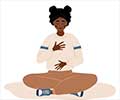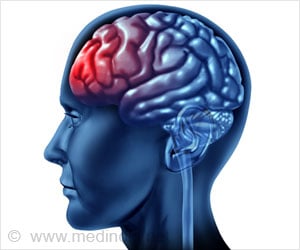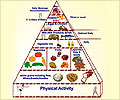Mild aerobic exercise can alleviate concussion symptoms
- Breathing exercises can help relieve concussion symptoms
- Concussion can have an impact on the body's autonomous systems
- There are standard therapies available
Delayed recovery was defined as concussion symptoms lasting longer than one month. Headache and dizziness are common symptoms, as are depression and mood issues, as well as memory and concentration issues.
"When someone has a concussion, it can affect the body’s autonomic nervous system, and it is increasingly clear that this underlies the inability to tolerate the exercise, problems with thinking skills, and mood issues in those with persisting symptoms," said the study author, R. Davis Moore, Ph.D., of the University of South Carolina in Columbia.
"Our study used a handheld biofeedback device to help people train their breathing to match their heart rate patterns. This can help balance the autonomic nervous system and manage symptoms."
Heart rate variability is the variation in the time between heartbeats. A person's heart rate, for example, may range from 60 to 100 beats per minute. After a concussion, everyone has variations in variability, which normally return to normal within a few weeks. But, for people with persistent symptoms, these alterations continue as if frozen in time.
The Study
The study included 30 youths who were injured while participating in sports or recreation and had symptoms for longer than a month. Individuals were placed into three groups and matched based on age, gender, amount of physical activity, and BMI.The biofeedback group used a computer application to practice deep breathing for 20 minutes four nights a week. The exercise group worked out three times weekly, beginning with 20 minutes of low-intensity aerobic activity and then increasing in intensity and duration. The third group used biofeedback as well as exercise.
Researchers discovered that, while all groups improved their sleep, mood, cognition, and autonomic function, those in the combined biofeedback and exercise group benefited more than those in the exercise or biofeedback alone groups.
Similarly, as compared to the exercise group, the combined group saw a 1.2-fold greater reduction in depression symptoms and a 1.3-fold greater reduction than the biofeedback group.
In addition, the combined group experienced 1.4 times the reduction in total mood disturbance as exercise or biofeedback alone.
Also, the combined group improved much more in attention and working memory, as well as in metrics of heart rate variability, than the exercise or biofeedback groups alone.
Managing Persistent Concussion Symptoms
"Managing persistent concussion symptoms is particularly challenging as there are no standard therapies," said Moore. "These therapies are inexpensive, easy to implement, and can be self-administered, making them feasible and accessible for everyone with persistent symptoms."One weakness of the study was the lack of a control group of participants who did not receive any intervention. Furthermore, the current findings are early, and bigger-scale investigations with larger groups of people will be required in the future.
It is also claimed that examination and treatments based on concussion physiology show that exercise is medicine for concussion, potentially adding a new dimension to concussion care to safely accelerate recovery and avoid PPCS (prolonged post-concussion syndrome) in some individuals (1✔ ✔Trusted Source
Exercise is Medicine for Concussion
Go to source).
Reference:
- Exercise is Medicine for Concussion - (https://pubmed.ncbi.nlm.nih.gov/30095546/)
Source-Medindia















